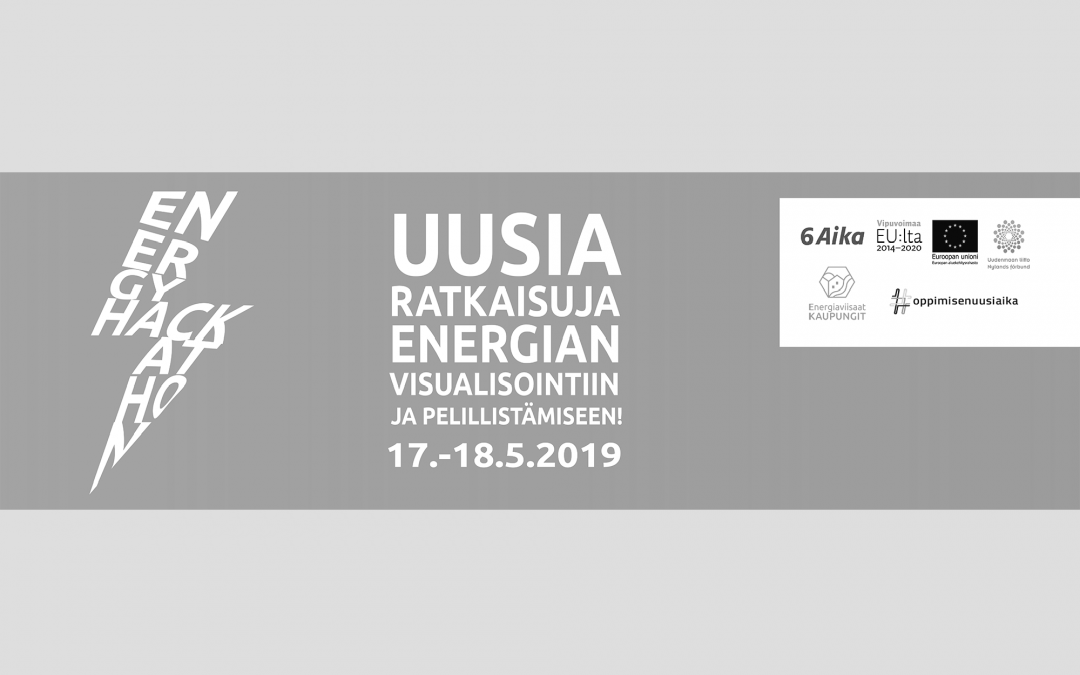We were at Energy Hackathon held at SparkUp Turku from 17-18 May 2019. There were many talented teams with very interesting solutions. Congratulations to the winning team Punnu Games. Congratulations also to the teams that received honourable mention: Datanikkarit, Jankon energia, Powerpuff Devs and Vainary.
Big shout out to organizers for a great hackathon.
Energiaviisas Koulu
Our solution named Energiaviisas Koulu where we proposed to visualise and track consumption data, create challenges and explore how our actions can influence consumption.
Cities have started to collect and release large sets of data about public buildings, including school buildings. However, this data is not available in a way that is easy for students to understand.
The solution will have 3 components. The common area displays with consumption data visualisation and tracking for creating awareness and curiosity. In-class challenges and non-linear storylines to collectively explore how the consumption can be influenced through actions. Multi-platform game with a non-linear storyline and social aspects to explore as an individual how actions can affect own environmental footprint. Build awareness, create curiosity, take action and explore.
We need to visualise the data in a way that is easy for students to understand. 16000 kWh in a week is hard to relate to compared to 114 times average household’s consumption. If historical data is available it is possible to show what is the trend compared to a previous period.
Time series data can be presented as a line graph as well to show how activities in the school affect consumption; for example consumption spikes when the school is in session. What happened during the weekend, why was there a consumption spike while the school was not in session?
With the help of in-class challenges, students and the teacher can explore collectively how their actions can influence the school’s energy footprint. For example, making sure all unnecessary electronics are powered off at the end of the school day in the classroom. With non-linear storylines, it would be possible to explore and evaluate how different actions will possibly influence emissions and consumption.
With the multi-platform game with the non-linear storyline with social aspects, it is possible for students to independently explore how different actions can influence environmental footprint. They can compare how they stand compared to their peers in the school, city, region or nationally. Students can safely go back in the storyline, change their choices to explore how different choices affect their character’s environmental footprint. Where possible the game will use real data if not use statistical averages.
We have one planet. Tackle climate change.

